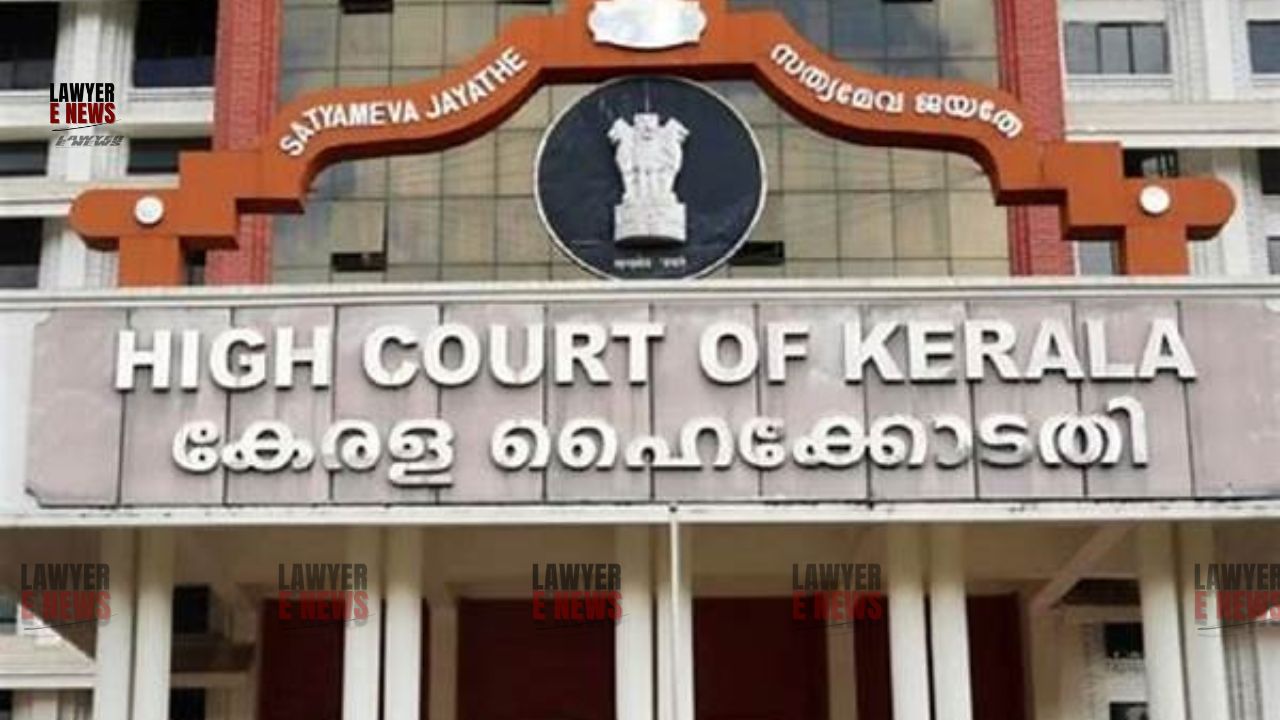-
by sayum
14 February 2026 2:22 PM



"No question of estoppel against a party arises when a judicial error exists. The court has a bounden duty to correct its mistake in the interest of justice." – Kerala High Court, Justice P.B. Suresh Kumar and Justice C. Pratheep Kumar. On November 18, 2024, the Kerala High Court allowed review petitions filed by Petitioner challenging its earlier judgment granting interim custody of a minor child to him. The court found an error apparent on the face of the record in its previous judgment and recalled the earlier order, observing that the question of interim custody was decided without properly adjudicating the correctness of the Family Court's custody orders. This ruling emphasizes the importance of safeguarding the best interests of the child and the court's authority to correct its own mistakes, irrespective of estoppel claims raised by the opposing party.
The case concerns the custody of a minor child, Adwaith, born to Amith T.S. (petitioner) and Divya M.S. (respondent), who are divorced. Custody arrangements were previously settled through a mediation agreement as part of G.O.P. 1537/2016 before the Family Court, Thrissur, granting permanent custody to the respondent (mother) and visitation rights to the petitioner (father). However, disputes resurfaced when:
The respondent remarried, relocated to Canada for higher studies, and entrusted the child to her parents in India.
The petitioner, working in Dubai, filed applications seeking permanent custody and permission to take the child to Dubai for his education.
The respondent countered with applications seeking permission to take the child to Canada and modifying the petitioner’s visitation rights.
The Family Court allowed the petitioner’s applications (permanent custody and permission to take the child to Dubai) while rejecting the respondent’s applications. The petitioner later approached the High Court for interim custody to immediately take the child to Dubai in the same academic year, while the respondent challenged the Family Court’s orders.
On February 23, 2024, the High Court granted interim custody to the petitioner and permitted him to take the child to Dubai. This order was subsequently acted upon, with the child being handed over to the petitioner. However, the petitioner later sought a review of the judgment, citing judicial errors in overlooking the substantive issues and procedural aspects.
The petitioner argued that the High Court’s earlier judgment failed to address the correctness of the Family Court’s custody orders and instead focused on the question of interim custody. The Court agreed, stating:
The core issue in the original petitions was the correctness of the Family Court’s orders on applications for custody, not the question of interim custody.
“The issue that arose for consideration in the matters has not been adjudicated, and the order proceeds on the incorrect premise that the question to be considered was interim custody.” – [Para 8].
The court held that this constituted a patent error warranting a recall of the earlier judgment.
The respondent contended that the petitioner, having acted upon the earlier order by taking custody of the child and enforcing related directions, was estopped from seeking a review. The Court rejected this argument, clarifying:
Estoppel applies to prevent inconsistent positions but cannot be invoked to bar correction of judicial errors.
“There is no question of estoppel against a party where an error is committed by the court itself, and the court is under a bounden duty to correct its own mistake.” – [Para 11].
The Court emphasized that equity and good conscience dictate that judicial errors must not remain uncorrected, even if one party has benefitted from the order.
The Court reaffirmed the principle that custody decisions are dynamic and must align with the child’s best interests, taking into account changed circumstances. It observed:
Every custody order, whether interim or permanent, is subject to modification if circumstances evolve.
“Interim custody arrangements may be revisited to ensure a fair adjudication of the parties’ claims and to protect the best interests of the child.” – [Paras 13-15].
The Court noted that its earlier decision had inadvertently granted the respondent a "windfall" by allowing her the right to seek permission to take the child to Canada, despite the Family Court’s orders not supporting such a claim.
Recall of the Earlier Judgment: The Court recalled its judgment in O.P.(FC) 683/2023, finding that it had overlooked the substantive issues and proceeded on an incorrect premise.
Restoration for Fresh Adjudication: The original petitions were restored for fresh consideration. The respondent was permitted to seek interim relief during subsequent proceedings.
No Estoppel Against Correction of Judicial Errors: The Court emphasized that procedural actions taken under the earlier judgment, including the petitioner taking custody of the child, did not bar the correction of judicial errors.
Guidance for Family Court: The Court instructed that the Family Court should properly exercise its jurisdiction in subsequent proceedings, considering all relevant factors to protect the child’s best interests.
The Kerala High Court’s decision to allow the review petitions underscores its commitment to rectifying judicial errors and ensuring that custody arrangements serve the best interests of the child. It reiterates the principle that courts have a duty to correct their own mistakes, even if procedural doctrines like estoppel are raised to block such corrections.
Date of Decision: November 18, 2024
